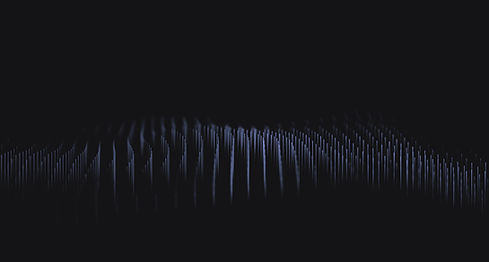INNOVATIVE TEACHING PROMOTER - EDUCATIONAL TECHNOLOGY
I am active in the bridge between fundamental science and intelligent technology. I see AI-driven interdisciplinary projects as future human-centered technologies with great and positive impact on society. Likewise, I am interested in the interaction of multiple disciplines, including physics, computer science and AI for Education. In this framework I am working as a founder and promoter of an intelligent education project at ETH Zürich, where the synergy of adaptive learning algorithms and natural language processing, plus gamification, is envisioned as a promising way of delivering personalized learning experiences.
07/2017 – CURRENT | ETH Zürich, IPA
DOCTORAL RESEARCH IN PARTICLE PHYSICS, ASTROPHYSICS AND COSMOLOGY
I worked on a new approach for galaxy morphological classification, consisting in feature-extraction from 2D-images via isophotal analysis of the galaxy-light distribution. Features are organized as 1D sequences including enough information to successfully distinguish between early-type and late-type galaxies. The sequences are processed through Modulos AutoML to perform automated model selection and training. Dimensionality reduction implies faster data manipulation and less computational cost, without significant loss in accuracy. This method can be potentially used to detect contaminating sources and for objects deblending, as well as for astronomical spectroscopy. Publications: Tarsitano et al., 2021, Image feature extraction and galaxy classification: a novel and efficient approach with automated machine learning (featured also on Modulos AI).
Leading the development of a novel project called PyCosmo, an interactive Python-based framework providing analytical and numerical predictions for cosmological quantities. It is publicly available online on the platform PyCosmoHub, https://pycosmohub.com/hub/login, where the users can work on Jupyter notebooks and benefit from easy tutorials and documentation. PyCosmoHub is useful both for educational and research purposes. Publications: Tarsitano et al, 2020, Predicting Cosmological Observables with PyCosmo, submitted to Astronomy and Computing. Additional developments currently focus on the implementation of new theoretical models to compute cosmological observables (e.g. the Kinetic Field Theory (KFT), described in Bartelmann et al., 2019).
03/2017 – 06/2017 | ETH Zürich, IPA
INTERNSHIP IN NUCLEAR AND PARTICLE PHSYICS
Contribution to the research work described in Kasieczka et al., 2017, within the CERN-CMS group at ETH Zürich. The goal of this project is to test the usage of deep learning techniques in Particle Physics analyses, focusing on the classification of reconstructed jet images from the LHC by comparing a deep-learning-based top tagger to the QCD- based top taggers.
03/2015 – CURRENT | ETH Zürich
DOCTORAL RESEARCH IN ASTROPHYSICS

Leading the creation of a catalogue of structural properties of galaxies for the Dark Energy Survey (DES) collaboration. With more than 150 million of galaxies made available to the astronomical community, it represents the biggest catalogue up to date. The measurements were made both through parametric fitting and non parametric approaches using supervised learning algorithms. Publications: Tarsitano et al, 2018, A catalogue of structural and morphological measurements for DES Y1 – Monthly Notices of the Royal Astronomical Society. Collaborative Publications: part of my work contributed to the study of NGC 4993, the host galaxy of the GW170817 gravitational wave event, which was included in media coverage and a press release. Information can be found here. Image in the right: courtesy of Palmese et al, 2017a.
03/2015 – CURRENT | ETH Zürich
TEACHING ASSISTANT
Teaching-assistant roles at ETH Zurich, Switzerland:
◦ Astrophysics, course coordinator and substitute lecturer, Spring Semesters 2021
◦ Physics III, Fall Semester 2020
◦ Astrophysics II, Spring Semesters 2018, 2019, 2020
◦ Statistical Methods in Astrophysics, Fall Semester 2018 ◦ Astrophysics I, Fall Semester 2018
◦ Physics II, Spring Semester 2016
◦ Physics I, Fall Semester 2015, 2016
03/2015 – CURRENT | ETH Zürich
academic reviewer
I reviewed papers for the journal Monthly Notices of the Royal Astronomical Society (MNRAS) and within the Dark energy Survey (DES) Collaboration.
12/2019| Stanford University
visiting PhD student
Visiting student in the Astrophysics Department, Stanford University.
Visit to the SLAC National Accelerator Laboratory.

conferences and seminars
-
Scipy 2020, online conference, July 2020
-
Python in Astronomy, online meeting, April 2020
-
Cosmology on Safari, South Africa, March 2019
-
Cosmo-18, Daejeon, South Korea, August 2019
-
Dark Energy Survey (DES) Collaboration Meeting, Penn State University, USA, June 2019
-
DES Collaboration Meeting, Stanford University, USA, May 2016
-
DES Collaboration Meeting, University of Michigan, USA, May 2015
-
Dark Energy Survey monthly tele-cons, Galaxy Evolution Group

digital skills
-
Python, C++, IDL
-
Data Science
-
Big Data
-
Statistics
-
Parallel Computing
-
Machine Learning
-
Scikit-Learn
-
Deep Learning, Tensorflow, Keras
-
PyTorch
-
HTML
-
Seaborn, Pandas, Numpy, Matplotlib
-
Wolfram Mathematica

communication and interpersonal skills
Creative and critical thinking and team work
Cognitive flexibility: I am energized by change and constantly challenge myself to adapt quickly and readily to the unknown. I am able to communicate research in one disciplines to researches trained in others. Vice-versa, I put a lot of effort to understand and analyze new perspectives. I believe active and mutual intellectual exchange in an interdisciplinary team are crucial to develop fresh and innovative ideas and to make them flourish in a fast-paced working environment.
Education
09/2009 – 10/2014 | University of Turin, Italy - CERN, Geneva
MSC IN NUCLEAR, SUBNUCLEAR AND BIOMEDICAL PHYSICS
In my master thesis I measured the radiation damage to the CERN-CMS calorimeter and worked on a possible calibration of its crystals. I also analyzed data from the CERN-CMS experiment to study decays of particles containing a beauty quark. Title of the project: Study of the noise in the Electromagnetic Calorimeter and Analysis of the Invariant Mass spectrum of Y(ns)gamma in the CMS experiment at LHC, CERN.
Final marks: 110/110 Cum Laude and Honor Mention.
09/2004 – 07/2009 | Liceo Classico C. Cavour, Torino, Italy
HIGH SCHOOL DIPLOMA - LICEO CLASSICO
Final marks: 100/100.

